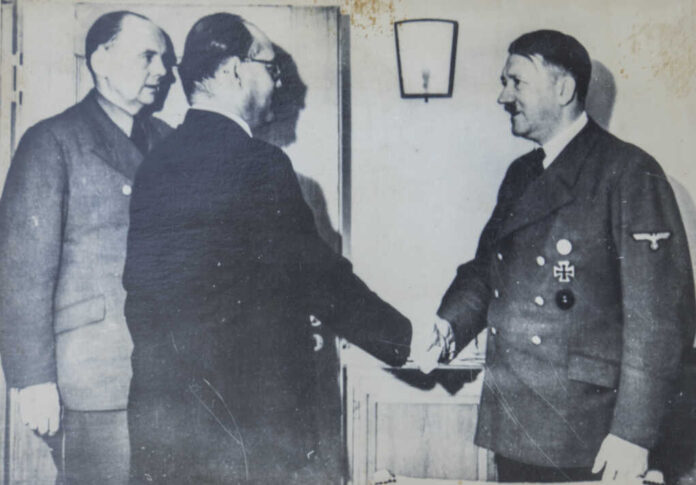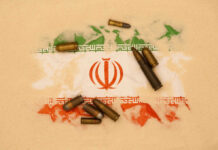
The Israeli ambassador to the United Nations sharply criticized Palestinian calls against his country, citing a major figure’s direct ties with Nazi Germany. Israeli Ambassador to the United Nations Gilad Erdan held up a picture of Grand Mufti of Jerusalem Amin Al-Husseini meeting with former German dictator Adolf Hitler.
Erdan held up the photo of the Muslim leader in a meeting with Hitler and described him as “one of the founding fathers of Palestinian nationalism.”
Grand Mufti Amin Al-Husseini is the “founding father” of Radical Jihadism.
A fervent Nazi, Husseini was also one of the architects of the Final Solution.
Radical Islam is nothing more than Nazi Ideology rebranded.
🎥 ZionMisrah/IG#AntizionismIsAntisemitism pic.twitter.com/83lLtL8dto
— The Persian Jewess (@persianjewess) April 4, 2024
Al-Husseini allegedly knew about the Holocaust and supported wider violence against both Jews in Europe and those who had traveled to the territory that would later become Israel.
“And from then until today, the root of this conflict has not changed. It is not a political conflict or about partitioning land,” said the ambassador. “It is solely about the destruction of Israel and the murder of Jews.”
Erdan further said that the United Nations was abetting “modern-day Nazi Jihadists” through their support for the “establishment of a Palestinian terror state.”
“This won’t be a regular state – it will be a Palesti-Nazi state. An entity that achieved statehood despite being committed to terror and Israel’s annihilation. If Hitler was alive today, he would be singing the U.N.’s praises,” Erdan said.
The Mufti and Hitler met in 1941, just five days after the bombing of Pearl Harbor.
The Mufti entered into the meeting thanking Hitler and giving his thanks to the dictator. Al-Husseini said that Hitler was admired by the Arab world and that he believed that Germany would win the war and shared the same enemies.
The Mufti represented one of the crucial allies of Nazi Germany and the Third Reich. The Palestinian leader reviewed Muslim Waffen SS troops that fought for Germany during his time in Europe.
Following the war, Al-Husseini was one of the major leaders against Israeli statehood and pushed for significant attacks on the new country.
Al-Husseini was also major influence radical Islamism, which would grow considerably in the following years.










